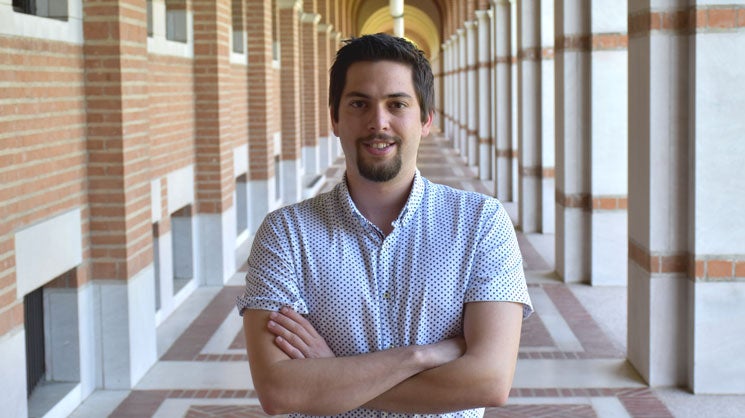Ph.D. student Constantinos Chamzas is among this year’s recipients of awards from the National Science Foundation (NSF) Graduate Research Fellowship Program (GRFP).
Chamzas works at the Laboratory of Professor Lydia Kavraki, the Noah Harding Professor of Computer Science and of Bioengineering at Rice University. The Kavraki Lab develops novel computational methodologies for robotics and biomedicine. Chamzas’ research is in the robotics field of motion planning.
He will benefit from a three-year annual stipend of $34,000 along with a $12,000 cost of education allowance for tuition and fees, opportunities for international research and professional development.
“This fellowship is a recognition that my research ideas and work are worth pursuing. I am very grateful to my advisor, Professor Lydia Kavraki. Her guidance and help were crucial to my progress. This award would not be possible without her mentorship. I’m also grateful to my Kavraki Lab colleagues,” Chamzas said.
Kavraki was thrilled to learn about the news.
“Constantinos has been a sheer force since he arrived at Rice. He is full of energy and ideas and tenacious in his goals. His research will lead us to new paradigms of motion planning that exploit modern ideas in machine learning and data science,” she said.
Chamzas' work is co-advised by Anshumali Shrivastava, Assistant Professor of Computer Science, of Electrical and Computer Engineering, and of Statistics.
“I am specifically trying to create algorithms that reuse the previous experiences of a robot when it computes motion planning queries. For example, if a robot has to perform a challenging motion planning task such as reaching in a deep shelf or navigating inside a cave with narrow cavities, in most cases it will need several seconds or even minutes of computation to find a successful plan. Yet, the next time it encounters a similar problem, the robot will start again from scratch. My research aims to develop techniques that can use "memory" to solve such problems more efficiently,” Chamzas said.
“I would also like to thank my coaches Ms.Julie Dihn and Dr.Elizabeth Festa for the advice and guidance during this process,” he said.
The GRFP recognizes and financially supports students who have the potential to be high-achieving scientists and engineers. A high priority for NSF and the GRFP is to increase the diversity of the science and engineering workforce, including geographic distribution and the participation of women, minorities, persons with disabilities, and veterans.

